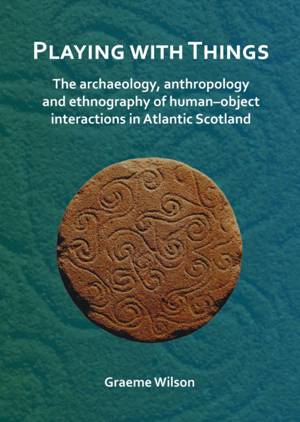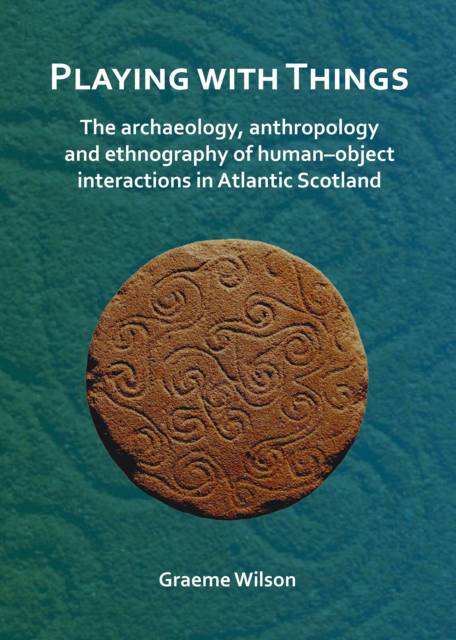
- Retrait gratuit dans votre magasin Club
- 7.000.000 titres dans notre catalogue
- Payer en toute sécurité
- Toujours un magasin près de chez vous
- Retrait gratuit dans votre magasin Club
- 7.000.000 titres dans notre catalogue
- Payer en toute sécurité
- Toujours un magasin près de chez vous
Playing with Things
The Archaeology, Anthropology and Ethnography of Human-Object Interactions in Atlantic Scotland
Graeme Wilson
Livre broché | Anglais
37,95 €
+ 75 points
Description
This book addresses the nature of play and its relationships with the world, as well as the relationships between people and objects. It begins with an account of ethnographic fieldwork among chess and card players in Edinburgh and Orkney and moves on to consider the findings in the light of archaeological sources. The work carried out amongst chess and card players led towards a more cognitive appreciation of these activities: how can the relationships between player and pieces be understood? It is suggested here that they are an example of 'active externalism', where cognition is not contained within the person but distributed in the immediate environment. The consideration of the role of gaming pieces leads towards an examination of the ways in which the manipulation of objects during play brings new and unexpected discoveries to the participants. The discussion addresses this theme in terms of bricolage and considers the placement of things singly and in sets. The archaeological review focusses for the most part on the first millennium AD in Atlantic Scotland. The nature of the evidence, and of our expectations of where play should be found, is examined critically. This study represents a reappraisal of the relationship between play - an activity which is most often understood in terms of something 'set apart' - and everyday life; it leads towards the conclusion that play is not in fact so separate as is often assumed.
Spécifications
Parties prenantes
- Auteur(s) :
- Editeur:
Contenu
- Nombre de pages :
- 156
- Langue:
- Anglais
Caractéristiques
- EAN:
- 9781789690750
- Date de parution :
- 31-12-18
- Format:
- Livre broché
- Format numérique:
- Trade paperback (VS)
- Dimensions :
- 175 mm x 244 mm
- Poids :
- 420 g







